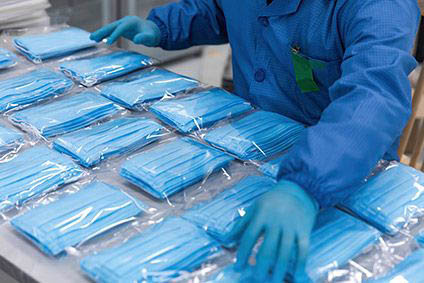What has been described as “the perfect storm of urgent need, supply shortages and overwhelmed health systems and governments” resulting from the ravages of the coronavirus has created what the Washington-based social enterprise and media platform Devex has described in a recent feature as a “wealth of opportunities for corruption.”
The July 1 article (authors Sean Darby and Tom Wright) flags “substandard ventilators, grossly overpriced equipment,” and “lucrative contracts awarded to companies with little or no expertise” as some of the crooked and underhand procurement practices that have emerged from the medical, sanitization and other supplies emergencies resulting from the advent of the global coronavirus pandemic.
What is believed to be a widespread racket that targets the various global financial pledges to combat the pandemic for huge rip-offs implicates some named countries including the United States, Britain, Brazil and Slovenia, though the racket is believed to embrace a number of other countries including underdeveloped ones.
The racket is almost certain to realise enormous financial drawdowns by individuals and ‘groups’ involved, given the scale of the supplies’ emergencies resulting from the pandemic. It has reportedly triggered calls from donors to national governments and international development agencies to “ensure emergency spending does not become an excuse for opaque contracting.”
The Devex report notes that while, “normally,” an estimated 10% to 25% of a public contract’s value is lost to corruption every year “… these are not normal times so it is a good bet that we will eventually discover this figure was much higher during the coronavirus pandemic as the perfect storm of urgent need, supply shortages and overwhelmed health systems and governments, provides a wealth of opportunities for corruption.”
Much of the opportunity for rampant corruption, the report says, is being facilitated by the fact that official responses to the pandemic by “governments around the world” has seen a “loosening [of] their procurement checks and balances” and the invoking of “emergency legislation, scrapping the need to open tenders to competitive bidding — instead choosing one supplier in what is known as a “direct award.” The article asserts that in the UK “procuring entities can bypass the normal requirement to publicise a tender openly and directly negotiate with suppliers when purchasing coronavirus-related equipment.” The risk, it says, is the creation of a circumstance in which “the choice [of contractor] is ultimately made by a small group of people, eliminating robust scrutiny and cost, quantity, and capability comparisons.”
Not least among the procurement anomalies, according to the article are circumstances in which “unmet demand in the market… has seen governments award contracts to suppliers they have never dealt with before or companies that have no track record of supplying professional grade medical products. Suppliers of COVID-19 response devices around the world have been appearing with no experience or quality thresholds in place,” the Devex article adds.
In an environment where checks and balances thresholds would have been likely to be lowered the report says that “price rigging and gouging of essential items has become commonplace” in some of the world’s most developed countries including the USA and Germany.
Devex names Uganda as a country in which one of its teams at Transparency International “has seen firsthand the artificial inflation of prices for emergency food products,” allegedly by state officials and “potentially for private gain.”
In Guyana, concerns over ‘rackets’ linked to supplies of ‘essentials’ associated with possible protection against the virus have been linked largely to price-gouging at the commercial distribution level. Earlier this year the sharp spike in demand for certain brands of sanitisers sparked what, in some instances, was a tripling in retail price for some brands, while many of these products quickly found their way onto the black market. Reports that some retailers have been sourcing face masks outside of the conventional channels have not been confirmed by this newspaper.






